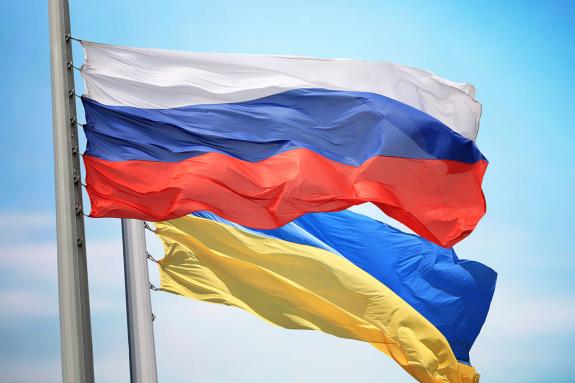
Market Commentary
An update on Russia/Ukraine
Read our latest commentary on Russia / Ukraine.
Situation on the ground
- Russia has concentrated its war efforts on the eastern side of Ukraine, apparently trying to form a corridor between Donbass and Crimea by taking the port city of Mariupol and sealing off Ukraine’s access to the Sea of Azov
- Ukraine rejected a request by the Russian military to surrender Mariupol.
- The Russians may be changing their immediate strategic goals due to the difficulties they face in taking large cities, especially Kyiv, which is larger than Paris and has a more challenging mountainous territory than most of Ukraine. The siege of Kyiv is another element suggesting Moscow is preparing for a long conflict.
- The United Nations said that 10m Ukrainians left their homes, of which 3.4m fled to other countries. Poland has absorbed more than 2m Ukrainians
- Russia shut an oil pipeline that sent up to 1m barrels of oil per day through the Black Sea for 2 months for repairs to a storm-damaged loading facility. The pipeline runs 1.5k km from the Tengiz oilfield in west Kazakhstan to the Black Sea, including oil produced by Chevron and ExxonMobil, making up for two-thirds of Kazakhstan oil exports and 2.5% of global seaborne oil trade.
- Opposition candidate Alexey Navalny was convicted on new fraud charges, which may keep him in a maximum-security prison for as much as 13 years.
- Italian Prime Minister Mario Draghi endorsed Ukraine’s bid for EU membership. Moldova and Georgia have pending applications
Market update
- JP Morgan confirmed all Russian and Belarussian assets will be excluded from their EM and global fixed income benchmarks with a zero value at 31 March, due to market disruption. The yields, spreads and duration contributions will be excluded from the index levels at the end of the month.
- Russia successfully repaid its Eurobond coupons last week despite sanctions impeding the country from transacting in USD via the correspondent banking system. The correspondent bank Citibank obtained approval from the Office of Foreign Assets Control (OFAC) to transfer the Russian USD to bondholders. At the same time, Russian airline companies defaulted on their leasing payments and kept the collateral (aircrafts) following government instructions.
- Russian corporates that have not been sanctioned, such as Servestal, were asked to request OFAC approval and, in some cases, may be using the additional step as reason to avoid debt repayment.
- Trading on the Moscow Stock Exchange resumed for the first time since February 25th. Trading in 33 blue chip securities resumed, but significant restrictions remain in place with non-residents barred from selling stocks and short selling banned. The index closed up 4.4% driven by buying from Russia’s Sovereign Wealth Fund.
- President Vladimir Putin said “hostile states” that imposed economic sanctions against Russia would have to pay their energy purchases in RUB. The European gas benchmark rose more than 20% and the RUB strengthened on the news. The mechanism will be developed by the Central Bank of Russia and will force Europe to sell EUR against RUB in the market, creating a scarcity of RUB offshore.
- At the same time, the US is working on a plan to boost supply of liquefied natural gas (LNG) to Europe in order to lower Europe’s dependency of Russia (40% of imports). The European Commission adopted a draft regulation requiring countries to fill 80% of their gas storage before next winter and 90% in the following years. The plan does little to reduce Russia’s massive gains over the next months and therefore, has little impact in supporting Ukraine.
- German authorities and power companies are preparing for a potential rationing of energy next winter with large industrial groups receiving letters from network operators asking them to outline their energy needs ahead of potential shortages.
- Germany and Hungary continued to reject a potential embargo on oil imports from Russia, while Poland and France are pushing for a fifth round of sanctions that would include an embargo on purchases of said oil.
- Bloomberg reported Central Bank of Russia Governor Elvira Nabiullina tried to resign after the invasion of Ukraine but was asked to stay by President Putin. Economist Anatoly Chubais, a key architect of Russia’s economic reforms, resigned as special envoy and left the country due to his opposition to the Ukraine war.